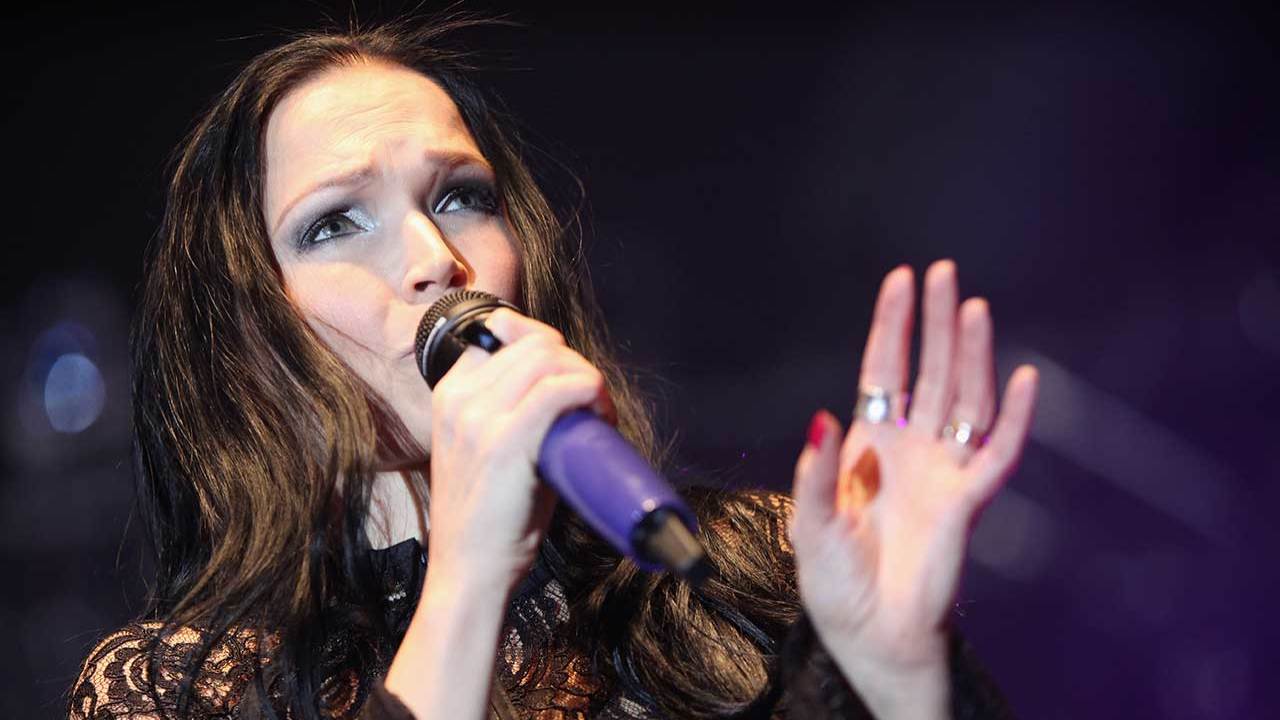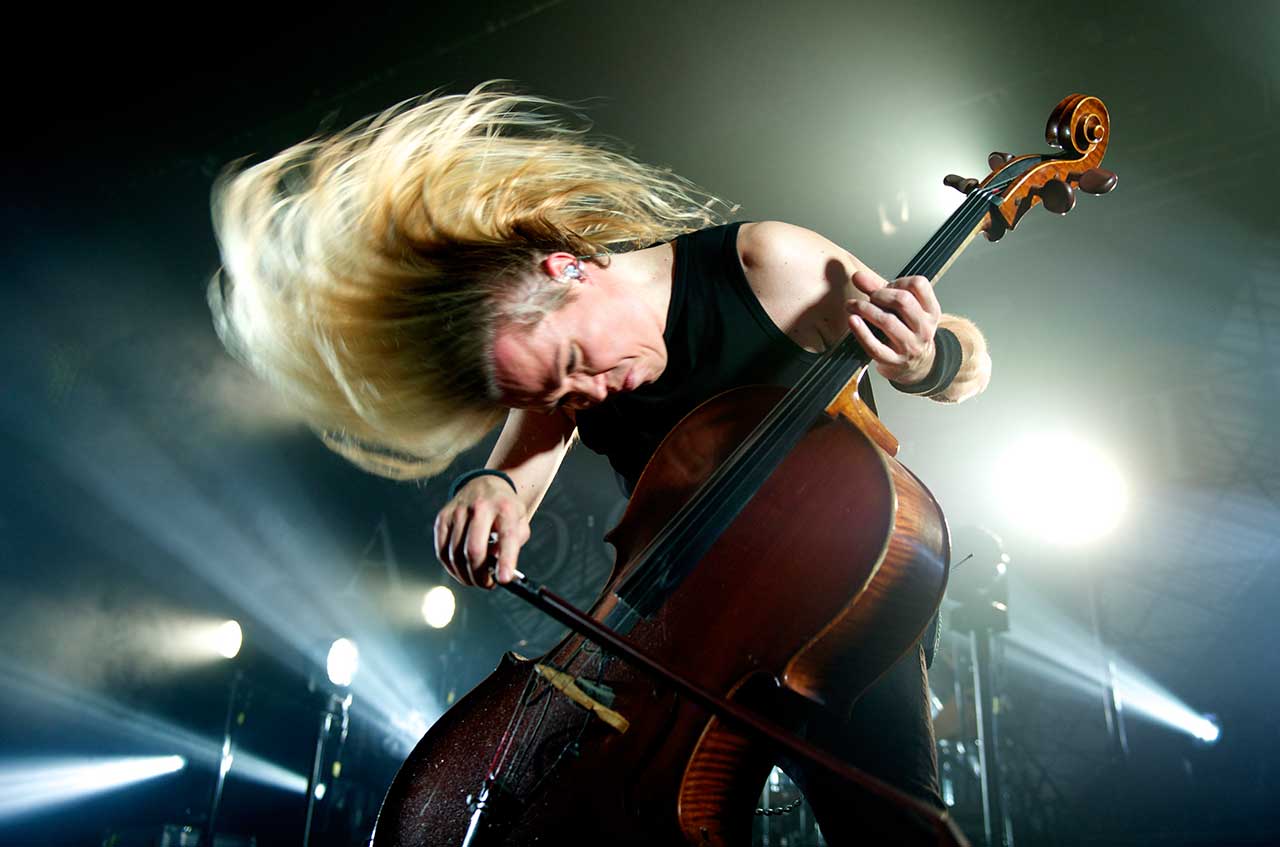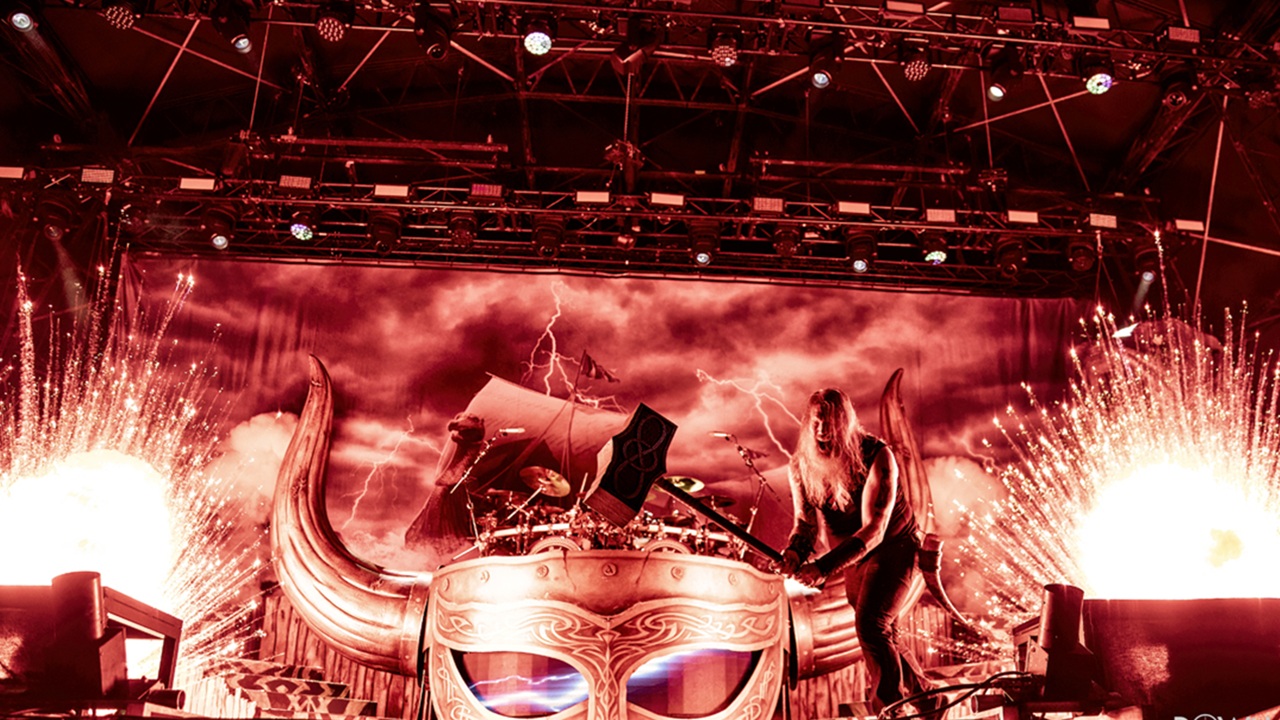What happens when metal and opera collide?
We investigate the crossover between the worlds of opera and metal

Select the newsletters you’d like to receive. Then, add your email to sign up.
You are now subscribed
Your newsletter sign-up was successful
Want to add more newsletters?

Every Friday
Louder
Louder’s weekly newsletter is jam-packed with the team’s personal highlights from the last seven days, including features, breaking news, reviews and tons of juicy exclusives from the world of alternative music.

Every Friday
Classic Rock
The Classic Rock newsletter is an essential read for the discerning rock fan. Every week we bring you the news, reviews and the very best features and interviews from our extensive archive. Written by rock fans for rock fans.

Every Friday
Metal Hammer
For the last four decades Metal Hammer has been the world’s greatest metal magazine. Created by metalheads for metalheads, ‘Hammer takes you behind the scenes, closer to the action, and nearer to the bands that you love the most.

Every Friday
Prog
The Prog newsletter brings you the very best of Prog Magazine and our website, every Friday. We'll deliver you the very latest news from the Prog universe, informative features and archive material from Prog’s impressive vault.
Chances are that if you don’t live in Finland you probably haven’t heard of the new opera Indigo, let alone seen it. And even if you did live in Finland, you’re on the Metal Hammer website, so why would you be interested in seeing an opera… right? Well, before you start getting flashbacks of the annual production of the Pirates Of Penzance your school took you to every Christmas, think again.
Indigo is, in fact, a new and rather unusual opera and one likely to have a lot more appeal to metal listeners than you might expect. Created by Perttu Kivilaakso and Eicca Toppinen, best known as the cello-wielding protagonists behind symphonic metal phenomenon Apocalyptica, it is described as a ‘metallic opera’ and tells a dystopian and futuristic tale centred around a sinister and powerful pharmaceutical company, a disastrous wonder drug and, ultimately, the power of love itself. Performed entirely on classical instruments it nonetheless purposely shuns many of the fundamental traditions of classical music and instead takes much of its influence from thrash and heavy metal – harnessing the power of the riff through a fresh medium – while also paying tribute to the pair’s love of nineteenth century romantic composers.
“We were actually asked to do it,” begins Perttu. “Two years ago we made an Apocalyptica concert at a big classical festival in Finland which is held by our national opera and because we combine the metal elements with the big symphony orchestra, the artistic director got this feeling that our music would fit into their purposes. We were given free reign to do whatever, she just loves our mentality and approach to music and wanted to see what our mentality creates when we get to work with opera. The funny thing for me is that opera is actually my biggest inspiration… as usual. I started to love that form of art when I was a kid so this is, of course, like a dream come true – I’m combining everything that has been guiding my life so far.”
“The artistic director has a great approach to music and is not just genre-driven,” adds Eicca. “She understands that the classical world needs to develop itself to reach new audiences and keep its old audience. I think that was very much behind her thinking. We love to write ballads and it’s not very far from that to writing aria for opera – we’re basically trying to make a great melody that touches you and an emotional atmosphere for the song.”
With a substantial background in both music forms, Indigo has clearly benefitted hugely from the knowledge and passion so evident in Perttu and Eicca. Far from an attempt to crowbar metal into the opera house, the two have been very careful to marry the two disciplines together in a subtle and harmonious manner and, most importantly, not lose the strengths of either genre.

“In our case I wouldn’t talk about ‘crossover’,” considers Perttu. “That suggests that the two things are separate and we put them together. I would rather call this a hybrid; it happens in a traditional opera hall and the music that the people are playing is in a traditional form but is very influenced by our musical personalities, which includes a lot of powerful things from heavy metal – banging even, that rhythmical [approach]. We wanted to skip the traditional heavy metal instruments because that would have been too obvious. It’s much cooler to make a flute player play heavy metal music and see how that sounds – that should be quite fresh.”
Apocalyptica are of course not the only musicians to have worked extensively in both of these musical cultures. Within her solo career and, most famously, as part of Nightwish, the classically-trained singer Tarja Turunen has undoubtedly helped popularise the concept of operatic metal, paving the way for numerous other acts featuring symphonic traits and an operatic approach to vocals.
Sign up below to get the latest from Metal Hammer, plus exclusive special offers, direct to your inbox!
“It is very common to hear the label ‘crossover’ to identify the artists that are capable to cross over music styles,” she admits. “In my case, I don’t see myself doing that, I don’t actually want to do that. What I am trying to do is to combine music styles, precisely not to cross from one to another, but completely erase the borders between them. If I managed to do so, time and listeners will tell. The biggest challenge for me is to be able to combine a pop/rock tune with classical vocals and arrangements, including a heavy band with distorted guitars, and still have space for choirs, soundtrack-like ambient sounds and keyboards. That’s what I am trying to do.”
“You can always find super-purists in everything in life,” she adds, “but from my experience people are in general much more open-minded than we tend to imagine. In my classical concerts and also in my rock concerts, there is a certain mix of people from older generation music lovers to young ones. I have talked with several fans of mine who learned to love metal after mostly listening to classical music and the same goes vice versa.”
Of course, as well as drawing upon classical elements, Indigo maintains the storytelling techniques inherent to all opera, including the ‘rock opera’, a tradition born in the late sixties and early seventies thanks to works like Tommy by The Who. As the years have passed and music has become heavier, it is perhaps not surprising that several metal musicians have been drawn to the format, one obvious example being Arjen Anthony Lucassen, whose project Ayreon has produced numerous albums in a rock/metal opera format. Incorporating ambitious songwriting and extravagant storytelling, Ayreon has also utilised a wide and impressive array of guest vocalists from the world of heavy metal to create the voices of the various characters involved, with contributions from members of Within Temptation, Stratovarious, Lacuna Coil, Nightwish, Dream Theater, and even Devin Townsend and Bruce Dickinson. And just last year, the memorable album The Human Equation was performed as a full theatrical production with the title The Theater Equation.
“It was definitely hearing the original recording of Jesus Christ Superstar with Ian Gillan back in 1970 that gave me the idea when I was ten years young,” explains Arjen. “What I love about rock operas and concept albums is that the story adds an extra dimension to the music, and the many different emotions and moods in both the story and the music. I like adventurous music, to be taken on a journey, and I love melody and power, so the marriage of classical and rock is perfect for me! Ritchie Blackmore was probably my biggest influence – a track like Rainbow’s Stargazer easily proves that rock and classical are totally compatible.”
“I’ve always liked not only rock operas but stuff that Andrew Lloyd Webber did,” explains Tobias. “Even if I didn’t get all the meanings as a kid I always liked that conceptual aspect, be it in Tommy or even King Diamond. It was tickling my imagination and I liked to have something that set you up on a journey, whether you follow the whole story or get the feeling of the story.”
“I like classical music of course,” he continues, “I like great stories and flamboyant music and that’s what really makes me appreciate the whole opera thing in general. I’ve always been more of a rock and heavy metal person – I prefer a Jim Steinmen record to a Wagner opera most of the time – but I like the whole idea of creating a movie for the inner eye. I enjoy that approach of creating a world and the characters and letting them set off on a journey.”
For those seeking a powerful form of escapism, the opera format has an enduring appeal and it’s one that is likely to be explored by musicians from the heavier end of the spectrum in the years to come. And we can’t finish a discussion of the subject without a mention of one of the very first people to really bring elements of classical music and storytelling into metal, namely Paul O’Neill. A producer of some renown, his work with renowned Florida metallers Savatage saw them adopting a significant change of direction from the 1987 album Hall Of The Mountain King [named after a piece by Grieg] onward. Just under a decade later he founded Trans-Siberian Orchestra with the help of Jon Oliva and Al Pitrelli from that very band and together with a staggering array of guest musicians they have created a series of metal operas, the most recent of which was last year’s Letters From The Labyrinth.
“My family had these classical and opera records all over the house so I got a chance to listen to a lot of this when I was very, very young,” he recalls. “Both classical and metal/rock have extremely large dynamics – the bombast of Beethoven’s fifth symphony and the gentle build of Grieg’s Hall Of The Mountain King compare well with Stairway To Heaven’s build up from a single instrument to their ‘everyone on 10’ ride out. Also, a lot of other types of music seem rooted in a 4⁄4 time, but both rock and classical allow a total freedom time-wise and signature-wise. It’s easier to take the listener on an exciting ride where their imagination would not normally go,” he concludes, “if there are no rules limiting that ride.”
Indigo runs until February 18 at the Finnish National Opera House Ooppera & Baletti in Helsinki.
